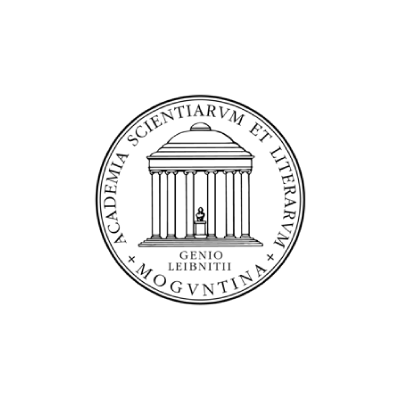The Mainz Centre for Digitality in the Humanities and Cultural Studies, mainzed, is an open network pooling digital expertise at the scientific location Mainz.
mainzed is actively working in research, teaching and the transfer of knowledge. In doing so, it
connects the regional network of competence to current research in the field of digital
humanities.
Each year, information on the activities of mainzed are provided within the annual
report on 31 July (2015-2016, 2016-2017, 2017-2018)
You can find information, presentations and white papers of mainzed here
We conduct
research on the key questions of the humanities and on
the cultural heritage from a digital perspective.
We develop
study programmes for students and advanced training
opportunities in digital methods primarily aimed at postgraduates and young researchers.
We support
researchers in using digital methods for their research.
mainzed offers a network of scientific exchange with regard to the development of projects and research foci for scientists of all qualification levels. The network is formed by organising and realising public events together.
With various public events, mainzed encourages the broadening and consolidation of the network. Information about our own events and plans are published via Mastodon in German. Alternatively, you can subscribe to the RSS-Feed feed.
A specific Masters Program is a prerequisite for a long-term establishment of digitality in the humanities
and cultural studies in Mainz.
To accomplish this, mainzed took the leading role in designing and
accrediting a new study program called »Digital methodology in the humanities and cultural studies«, which
will be jointly offered by two universities in Mainz.
For more information, please visit the
corresponding pages for Johannes
Gutenberg University Mainz and University of Applied Sciences Mainz.
mainzed is a collaboration of six partners in research and teaching. With our forces joint, we aim at
evolving our competences in the area of digital methods in the humanities.
Besides a research
infrastructure, our spectrum spans digital methods in the area of spatial humanities, natural language
processing, linguistics, digital edition, music, multimedia and web technologies for a semantic web.

Information in accordance with section 5 TMG:
Contact
mainzed is an alliance between the Academy of Sciences and Literature in Mainz, the Mainz University of
Applied Sciences, the Institute of European History, the Institut für Geschichtliche Landeskunde an der
Universität Mainz e. V., the Johannes Gutenberg-University Mainz and the Römisch-Germanisches Zentralmuseum
Mainz.
Represented by the directorate Prof. Dr. Kai-Christian Bruhn (director) Prof. Dr. Gerhard Lauer (deputy director)
Disclaimer
Accountability for content
The contents of our pages have been created with the utmost care. However, we cannot guarantee the
contents’ accuracy,
completeness or topicality. According to statutory provisions, we are furthermore responsible for our own
content on these web pages.
In this context, please note that we are accordingly not obliged to monitor merely the transmitted or saved
information of third parties,
or investigate circumstances pointing to illegal activity. Our obligations to remove or block the use of
information under generally applicable laws
remain unaffected by this as per §§ 8 to 10 of the Telemedia Act (TMG).
Accountability for links
Responsibility for the content of external links (to web pages of third parties) lies solely
with the operators of the linked pages. No violations were evident to us at the time of linking.
Should any legal infringement become known to us, we will remove the respective link immediately.
Copyright
Our web pages and their contents are subject to German copyright law.
